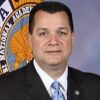Global research analyst Josh Bersin points out how “the single biggest driver of business impact is the strength of an organization’s learning culture.” If you conduct an honest assessment of your organization’s learning culture, does it promote learning at all levels? If you’re a senior leader, do you frequently learn something new from your subordinates or those new to the organization?
There’s always time to learn something new
A study conducted by Leadership IQ of over 16,000 employees found that 52% of respondents reported never, occasionally, or rarely learning something new at work. Additional research found that only 20% of employees demonstrated effective learning behaviors within the workplace. These are disturbing statistics and point to the dysfunction we find within many organizations.
It’s also safe to say there are significant breakdowns in leadership. In public safety, a lack of innovation, growth and learning will stifle professional development and hamper an organization’s ability to provide necessary services. Sometimes the formalized structures found within public safety are our own worst enemy. During our formative years as recruits, we look up to our instructors and ultimately our field training officers and first-line supervisors. The underlying tone often suggests that doing anything but learning from those with more experience will have grave consequences.
Read more
Does your promotional process pass the test?
You have a key role here, Chief, in promoting the next generation of leaders to enforce the rules you have put in place
Sometimes our own egos get in our way. Those entrusted with training or leading new personnel have clearly established themselves above their peers in terms of professional development and personal performance. And while the organization entrusts these same individuals with molding new members, that doesn’t mean those personnel can’t learn from younger, less-experienced employees. Quite the contrary. Younger employees bring a fresh perspective and often an enhanced level of motivation to the workplace. And just because they are new or young doesn’t mean they didn’t have a life before coming to your agency. Whether through formal education or life experience, there’s something every young person or new hire brings to the table.
Generational considerations
With three to four generations represented within most public safety agencies, it’s important to understand how your younger personnel relate to the world around them. A 2016 survey of middle- and high-school students from 49 states (by now, these are your new hires), found that 64% of respondents identified class discussion as the most helpful learning tool.
It should come as no surprise that the physical interaction among peers is a key element to learning. But when I think back to my years as a rookie, I recall more of a “sit and listen” posture whereby my instructors and my field training officer contributed more to my learning process than I did. Today, your new personnel want to be engaged and take more of an active role in the process by satisfying the “why” inherent within most of them. That naturally inquisitive nature contributes to increased dialog, which can be a learning process for even the most senior members of your agency.
Many of your new hires likely come from Generation Z, a group of cohorts born after 1997. Exposed to technology and a virtual world for most if not all their lives, they are used to finding and working things out for themselves. Creativity naturally evolves from this process and it’s important to understand many Gen Z employees aren’t satisfied with the status quo or “we’ve always done it that way” mentality. Flexibility and collaboration are two key factors that contribute to how this generation learns while on the job.
And that in turn creates an opportunity to learn from them. Gen Z is probably the most educated generation. In 2020, the Pew Research Center noted how nearly 60% of 18–21-year-olds were enrolled in either a two- or four-year college. A naturally inquisitive mind and additional academic exposure create enhanced opportunities for learning. They already know or understand more than we often give them credit for.
It’s also important to remember the experienced members of the organization who transferred from other vocations or public safety agencies. These personnel bring a wealth of knowledge to the table and their experiences outside public safety provide additional context and added value to your organization.
What we can learn from our subordinates
We can always learn something from those under our charge. Here are four key elements leaders should embrace while encouraging a two-way learning process:
- Out-of-the-box thinking: Your subordinates are creative, energetic and motivated to offer feedback. Take time to hear them out. They might just be able to offer innovative solutions to current problems or generate new ideas with a fresh perspective.
- Masters of technology: If you struggle with new or emerging technologies while on the job, your younger members are your go-to sources of information. They’ve grown up around it their entire lives and are adept at troubleshooting everything from a smartphone to a computer system.
- Relating to the world around them: When I was in grad school, I conducted a study on police cynicism. My research suggested that most police officers develop a cynical attitude toward the public and the world around them somewhere during the three- to five-year mark after the academy. This happens innocently enough because of our operational environments and these attitudes change throughout our careers based on personal experiences and longevity. Your new hires likely haven’t developed a jaded outlook toward the job. Their ability to see the world through a different lens can rub off on the more experienced members, giving us different perspectives and, in some situations, enhanced tolerance and acceptance, which undoubtedly improves performance.
- Leadership: I’ve seen leaders who thought they had all the answers and were appointed to their positions to exact their will upon others. The truth is good leaders never stop learning and appreciate the opinions and guidance they receive from subordinates. Every human is different and with those differences come opportunities to learn and hone our own leadership skills. When we embrace different personalities, we must use different leadership styles and step outside of our comfort zone. With each new subordinate comes a new chance for personal and professional development.
The practical application of knowledge
Those attracted to employment within public safety organizations represent a special segment of society who are motivated by serving others. As leaders, you have the enviable responsibility of guiding the efforts of these selfless people who don’t do the job for money, notoriety, or personal gain. They do it to help others in times of need. We’re all in this together and there are endless opportunities to learn from one another during every call for service, within every meeting and through every relationship.















